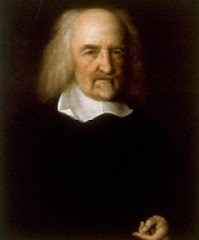In De Cive, Hobbes says that drunkenness and cruelty are violations of natural law; “For I cannot see what drunkenness or cruelty (which is vengeance without regard to a future good) contribute to any man’s peace or preservation” (III.27n). I’ve always wondered about this passage. First, does anyone have any thoughts on what might be behind the drunkenness constraint? It seems plausible to say that in the state of nature, being drunk would only increase one’s vulnerability. But this doesn’t seem like enough to motivate an absolute prohibition on drunkenness. In Leviathan, Hobbes compares the actions of drunk men to the actions of madmen (8.23). So perhaps he is merely saying that he cannot imagine a situation in which acting like a madman could be conducive to a person’s preservation. Second and more importantly, given that the right of nature is the right to anything one judges conducive to one’s self-preservation, does that mean that the famous “right to all things” doesn’t include the right to be drunk or cruel?
Sunday, July 27, 2008
Subscribe to:
Posts (Atom)
